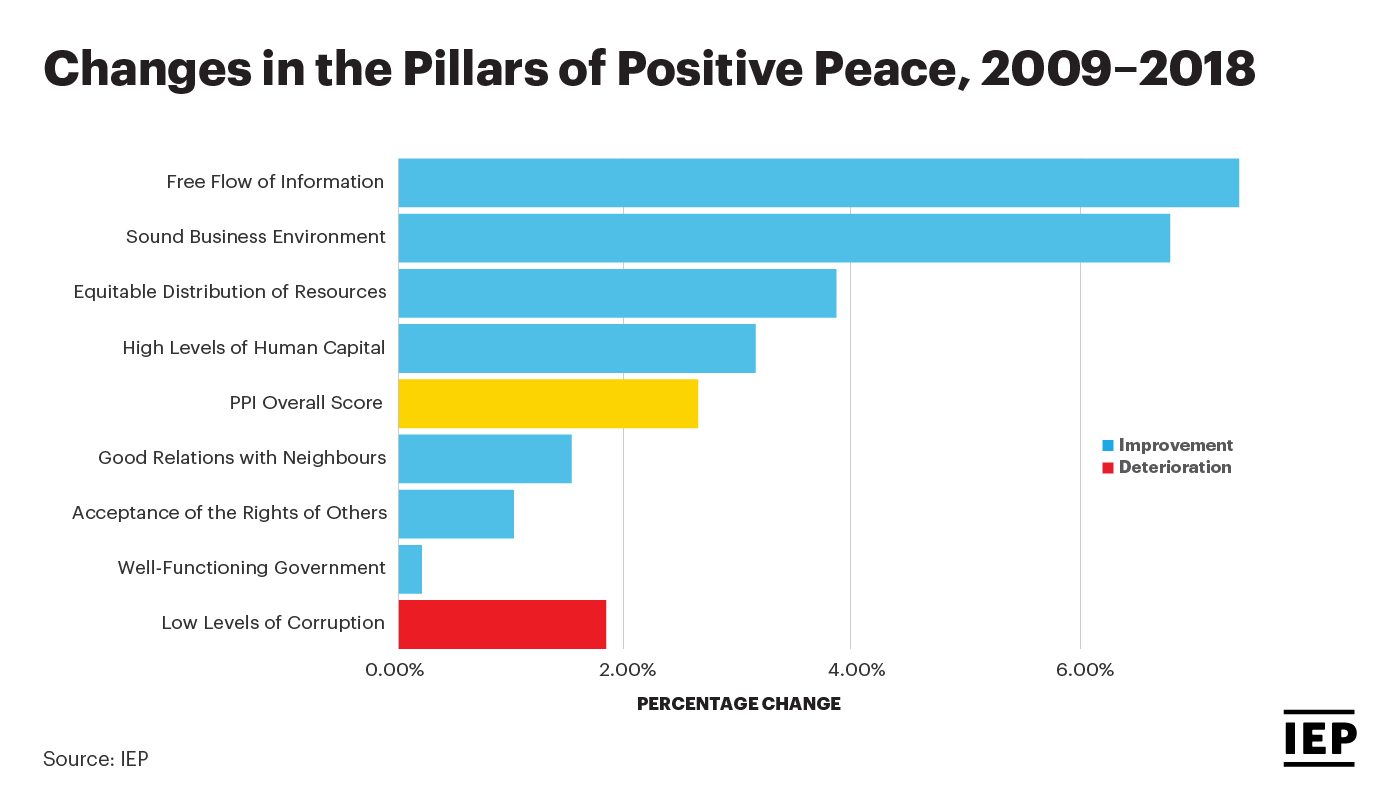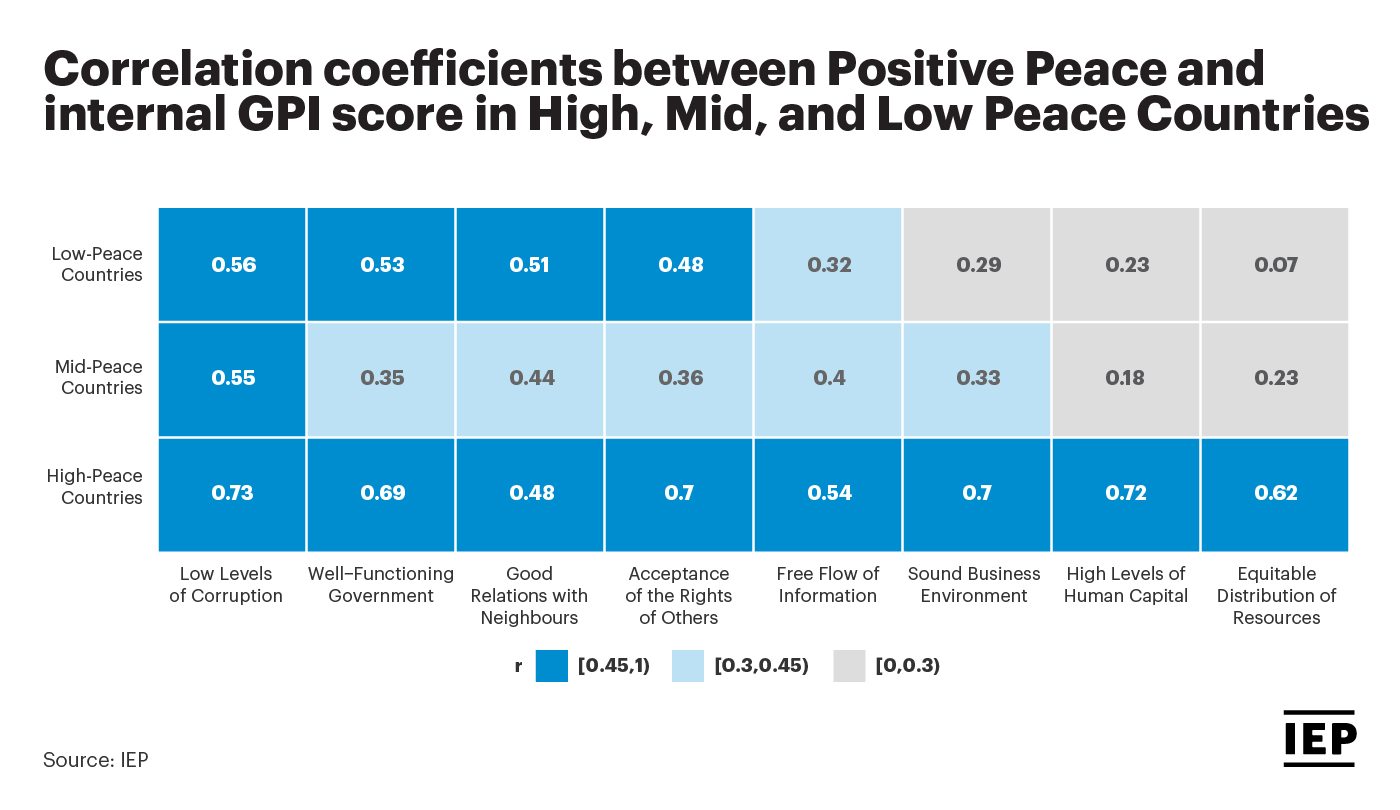Research suggests that corruption in France has become either more prevalent or that the existing levels of corruption have become more evident to the population over the past decade.
A court has found former French president Nicholas Sarkozy guilty of corruption and influence peddling. Clearly, this is an important reminder that established democracies and high peace societies are vulnerable to abuses of power, a factor that can destabilise peace.
According the court’s verdict including wiretap evidence, Sarkozy tried to bribe a judge by offering him a desirable job in Monaco in return for confidential information from an inquiry that alleged Sarkozy accepted illegal political campaign donations.
The leader of France between 2007 and 2012, Sarkozy denies any wrongdoing, claims the case is a witch hunt and has announced he will appeal.
The news undermines France’s image as a well-functioning democracy.
France is currently ranked 23/180 on Transparency International’s Corruption Index with a score of 69/100. According to this index, France shows a relatively strong level of public sector integrity. However, research from the Institute for Economics & Peace (IEP) suggests some backsliding over the last decade.
According to the 2019 Positive Peace Index, the Low Levels of Corruption pillar deteriorated in France between 2009 to 2018.
This suggests that corruption in France has become either more prevalent or that the existing levels of corruption have become more evident to the population over the past decade.
The Well-Functioning Government pillar has also recorded a substantial deterioration from levels ten years ago. Subsequently, this reflects growing ineffectiveness in the government, the democratic process and rule of law.

Low levels of corruption are integral to a peaceful society, according to IEP research. It’s a crucial factor that forms one of the eight pillars of Positive Peace. The eight pillars of Positive Peace form a peacebuilding framework showing what underpins secure and prosperous societies.
In the context of building peace, this pillar can enhance confidence and trust in institutions. It can also influence broader levels of stability.
In societies with high levels of corruption, inefficient resource allocation often leads to a lack of funding for essential services and civil unrest.
Corruption inhibits transparency, increases transaction costs and lowers business efficiency. All three are factors that establish hurdles to domestic and foreign investment.
Unfortunately, the Sarkozy story is another sign of the broader demise in political and public sector integrity.
According to IEP research, on a global scale, levels of corruption have increased. Between 2009 and 2018, seven of the eight pillars of Positive Peace improved.
However, the low levels of corruption pillar showed a 1.9% deterioration over the same period.

Low Levels of Corruption is the only Positive Peace pillar that is strongly statistically significant across all levels of peacefulness. IEP research shows the correlations for each of the eight pillars of Positive Peace at each level of peace.
A correlation coefficient of greater than r=0.45 indicates a strong relationship. Anything above r=0.3 indicates a moderate relationship.
It demonstrates that as levels of violence fall, the strength of the Positive Peace correlations increase. Five of the pillars correlate with low peace countries, six with mid-peace countries, and all eight pillars correlate strongly in high peace countries.